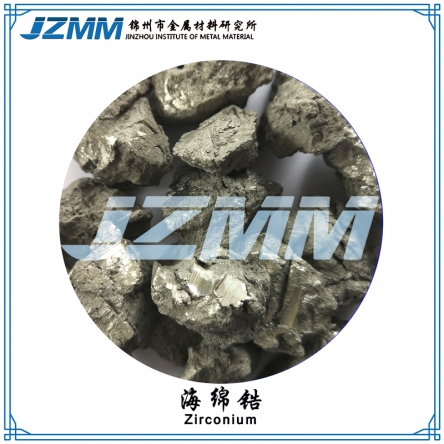
At present, there are two major nuclear grade zirconium sponge manufacturers in China, namely SinoTech and Orient Zirconium Industry. SinoTech was established in 2009 as a joint venture between SinoTech and Westinghouse of the United States. Its first-phase zirconium sponge production capacity of 1,500 tons has been completed, with a planned capacity of 2,000 tons. Dongyang Zirconium, a subsidiary of Dongyang Zirconium, has a capacity of 150 tons of nuclear grade zirconium sponge and another 1,000 tons of nuclear grade zirconium sponge is under construction. The combined capacity of the two is more than 2650 tons, which can meet China's demand for nuclear grade zirconium by 2020.
China's zirconium processing foundation is solid, there are two main production lines: one is the northwest zirconium pipe (at present, affiliated to the state nuclear treasure titanium) from abroad to introduce a full set of zirconium pipe production equipment, equipment level has reached the 1990s international advanced level. The other is a zirconium tube production line at Shanghai Gaotai Rare Metal Co., now controlled by China National Nuclear Corp. These two lines have a combined capacity of 1.5 million meters of zirconium tubes, and nearly 200,000 meters of zirconium alloy tubes were produced during the Tenth Five-Year Plan period. The zirconium alloy tubes used in the nuclear power reactor built by China for Pakistan are all completed on these two production lines. Currently, China National Nuclear Areva Zirconium Tube Company (CAST), a joint venture between Shanghai Gaotai and France Alpha, has localized the supply of M5 zirconium tubes. The company is making great efforts to realize the localization of Zirlo zirconium tubes.

Despite the historical accumulation of zirconium and zirconium materials in China, zirconium alloys with independent intellectual property rights have not been formed. Through technology transfer, China has introduced E110 zirconium alloy from Russia, M5 alloy from France and Zirlo zirconium alloy from the United States, but at present, these alloys have not been domestically produced in industrial applications. At present, China's zirconium alloy must also rely on foreign imports, such as domestic M310 unit needs to buy M5 alloy from France, AP1000 unit from the United States zirconium and niobium alloy Zirlo.
It is estimated that the complete localization of M5 and Zirlo zirconium alloys will be realized in 2-3 years, while the industrial application of zirconium alloys with independent intellectual property rights may be realized after 2023.